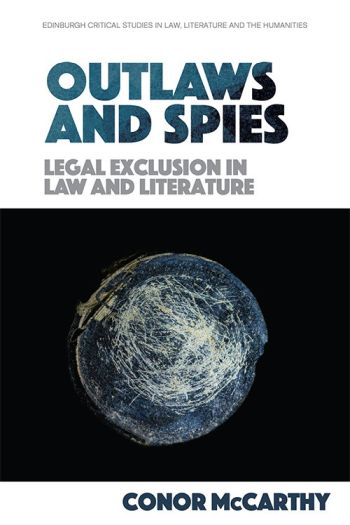
Examines the role of literature in representing and critiquing the exclusion from law as an enduring tactic of state power.
Outlaws are often viewed as historical figures of popular resistance, but there is another side to legal exclusion. In offering readings from two bodies of literature not normally read together – the literature of outlawry and the literature of espionage – this book shows that a substantial body of writing within these genres serves an important purpose in representing and critiquing the longstanding use of legal exclusion as a means of supporting state power.